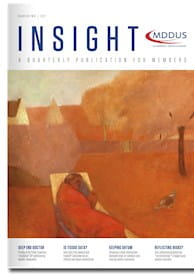IT’S official now – at least according to the Daily Mail. 'You ARE more likely to die if you are admitted to hospital on a Saturday or Sunday'. So stated a recent headline in the newspaper, with the subhead: "New report adds growing evidence to the NHS ‘weekend effect’." Surely the most telling feature in this headline is the rather strident "ARE" – clue to just how much the "evidence" here is still disputed.
The source of the Daily Mail article is an easy-to-miss report on the NHS Digital website entitled Seven-day Services – England, October 2015 – September 2016, Experimental statistics. The report summary starts off by citing the 2015 speech by Health Secretary Jeremy Hunt in which he outlined his commitment to "seven-day" NHS care and highlighted variation in outcomes associated with weekend hospitalisation.
This is the same speech in which he made the controversial claim that around 6,000 people lose their lives every year due to the lack of a proper seven-day service in hospitals and that patients are 15 per cent more likely to die if admitted on a Sunday compared to being admitted on a Wednesday.
The report then states that the “experimental statistics” compiled by NHS Digital are being published to provide a starting point for discussions on how the NHS can effectively measure both improvement and variation in care provision across the week.
It contends that among "key facts" consistently emerging from the data are that patients admitted at the weekend have an increased likelihood of mortality within 30 days of admission compared to those admitted midweek. It has also found that patients discharged on Friday, Saturday and Sunday are more likely to require emergency readmission within seven days of discharge compared to those discharged on a Wednesday.
The common assumption is that this is due to reduced availability of senior staff and diagnostic services in hospitals at weekends. But as Martin McKee, professor of European Public Health, wrote last year in a BMJ editorial "almost nothing is clear in this tangled tale". He makes the point that evidence does exist to support a “weekend effect” but the real question is how do you tease out the causes and come up with an appropriate response.
McKee looked at two key studies used to support Jeremy Hunt’s original claims on the weekend effect and commented: "The problem was that, while both did identify an increase in deaths among those admitted at weekends, neither attributed it to a shortage of medical staff. Both identified numerous possible explanations, including various data artefacts."
Just before the NHS Digital report was published this April another two studies appeared concerned in part with the weekend effect. Researchers at the University of Edinburgh published a study in the British Journal of Surgery looking at more than 50,000 emergency surgery cases in Scotland over a three-year period between 2005 and 2007. They tracked patient outcomes until 2012 and found that patients who were admitted over a weekend were more likely to be operated on sooner but there was no evidence to link day of the week to an increased risk of death for those undergoing emergency operations. Emergency patients are, in any case, eight times more likely to die than those who elect to have surgery, as they more commonly experience complications.
Another recent study from Bristol found that NHS patients admitted to hospital at the weekend with a hip fracture are at no greater risk of death compared to those admitted on weekdays. In fact, the risk of death during the hospital stay was lower at the weekend than in the week. It did find that a delay to surgery or undergoing surgery on a Sunday (when provision for operations in many hospitals is less) were associated with an increased risk of death at 30 days – as was being discharged from hospital on a Sunday or out of hours.
Both of these studies serve to illustrate that the picture is far from simple and caution is required when analysing and interpreting data.
Indeed the NHS Digital report itself concludes that there are "many possible explanations" for the weekend effect such as difference in the case-mix of patients, patient behaviour and provision of services both in and outside of the hospital (including social care) and that its analysis is "unable to determine the causes of the observed variation".
No doubt this is a debate that will run and run.
This page was correct at the time of publication. Any guidance is intended as general guidance for members only. If you are a member and need specific advice relating to your own circumstances, please contact one of our advisers.
Read more from this issue of Insight

Save this article
Save this article to a list of favourite articles which members can access in their account.
Save to library